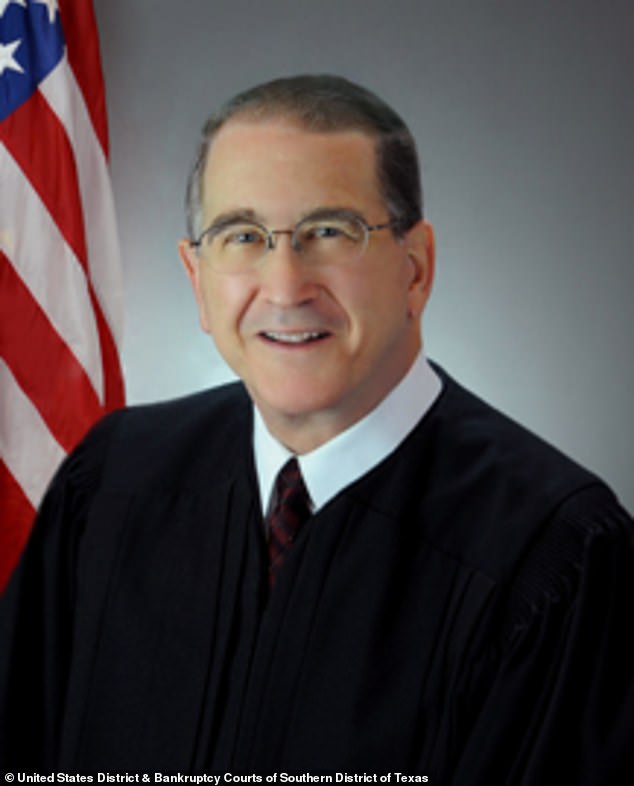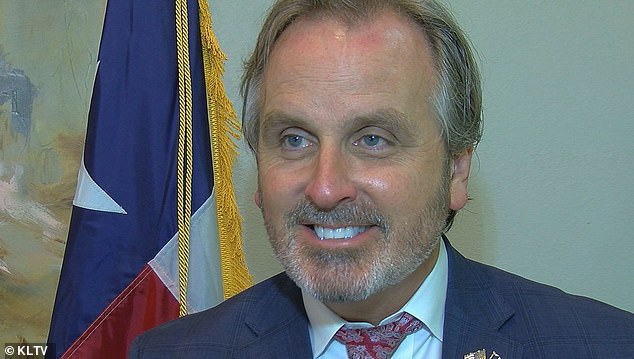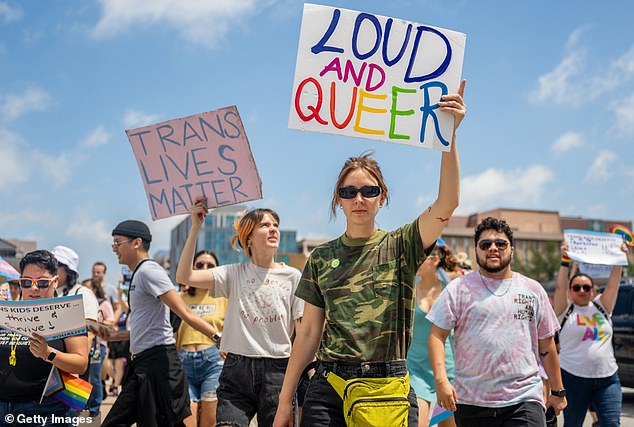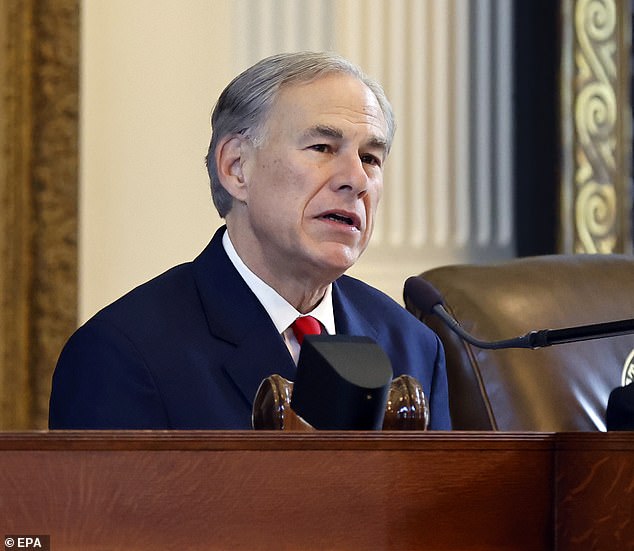Federal judge THROWS OUT Texas ban on drag acts saying the state’s new law is unconstitutional
Federal judge throws out Texas’ ban on drag acts, saying the state’s new law is unconstitutional
- U.S. District Judge David Hittner ruled Tuesday that the law is discriminatory
- Senate Bill 12, signed by Republican Governor Greg Abbott, bans minors from attending drag shows and ‘sexually explicit’ content
A federal judge rejected a Texas law aimed at restricting drag performances, ruling Tuesday that the bill is an unconstitutional restriction on speech.
Senate Bill 12, signed by Republican Governor Greg Abbott in June, banned minors from attending drag shows and “sexually explicit” content.
U.S. District Judge David Hittner ruled that the law was discriminatory and inappropriately vague.
“Not all people will like or approve of certain performances,” Judge Hittner wrote. “This is no different than one person’s opinion of certain comedies or musical genres, but that alone does not remove First Amendment protection.”
He said drag performances were not inherently obscene and were the kind of expressive speech protected by the First Amendment to the U.S. Constitution.
The LGBTQ community sees SB 12 as an attack on their existence. People are pictured marching in Austin on April 15

U.S. District Judge David Hittner ruled that the law was discriminatory, saying drag performances were not inherently obscene

Bryan Hughes, the Republican senator who introduced the bill banning drag shows for minors
Judge Hittner added that the “chilling effect SB 12 will have on speech in general outweighs the hardship to the state of Texas.”
The judge nominated by Republican President Ronald Reagan temporarily blocked the law’s entry into force last month.
The decision was celebrated by many LGBTQ advocates and drag performers.
Pride March organizers joined the American Civil Liberties Union in a lawsuit in Houston federal court to block the law.
“LGBTQIA+ Texans, venue owners, artists and our allies all came together to uphold free speech in our state – and we won,” said the ACLU Texas wrote on X.
The message continues: “This work is not done yet, but for now we celebrate. Long live Texas Drag!’
The law, signed by Governor Greg Abbott in June, was seen as part of Republicans’ efforts to regulate and restrict the behavior of LGBTQ groups.

People march to the Texas State Capitol in Austin on April 15, weeks before the Legislature passed “anti woke” bills in its final days

Texas Republican Governor Greg Abbott signed Senate Bill 12 into law in June
Lt. Gov. Dan Patrick, a Republican, wrote on Twitter: “SB12, which bans children from being exposed to drag queen performances, is about protecting young children and families. This story isn’t over yet.’
The Texas attorney general’s office defended the law, which, among other things, banned “the display of sexual gestures with accessories or prosthetics that exaggerate male or female sex characteristics” in public.
More than a dozen states have tried to restrict drag shows in the past year.
Texas followed the example of Montana, the first state to specifically ban people dressed in drag from reading books to children in public schools and libraries.
Arkansas, Florida and North Dakota also passed laws this year regulating “adult” performances that could be used to crack down on drag shows.
Bryan Hughes, the Republican senator who championed SB 12, celebrated the bill’s passage in May, saying it would protect children.
“Great news: our bill to protect children from sexually explicit drag shows (SB 12) is officially headed to the Governor’s desk,” he tweeted.
“These shows are unquestionably inappropriate for minors, and we will not allow children in Texas to be sexualized or preyed upon.”
